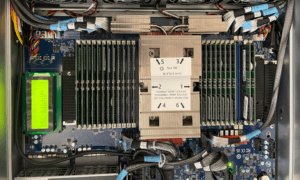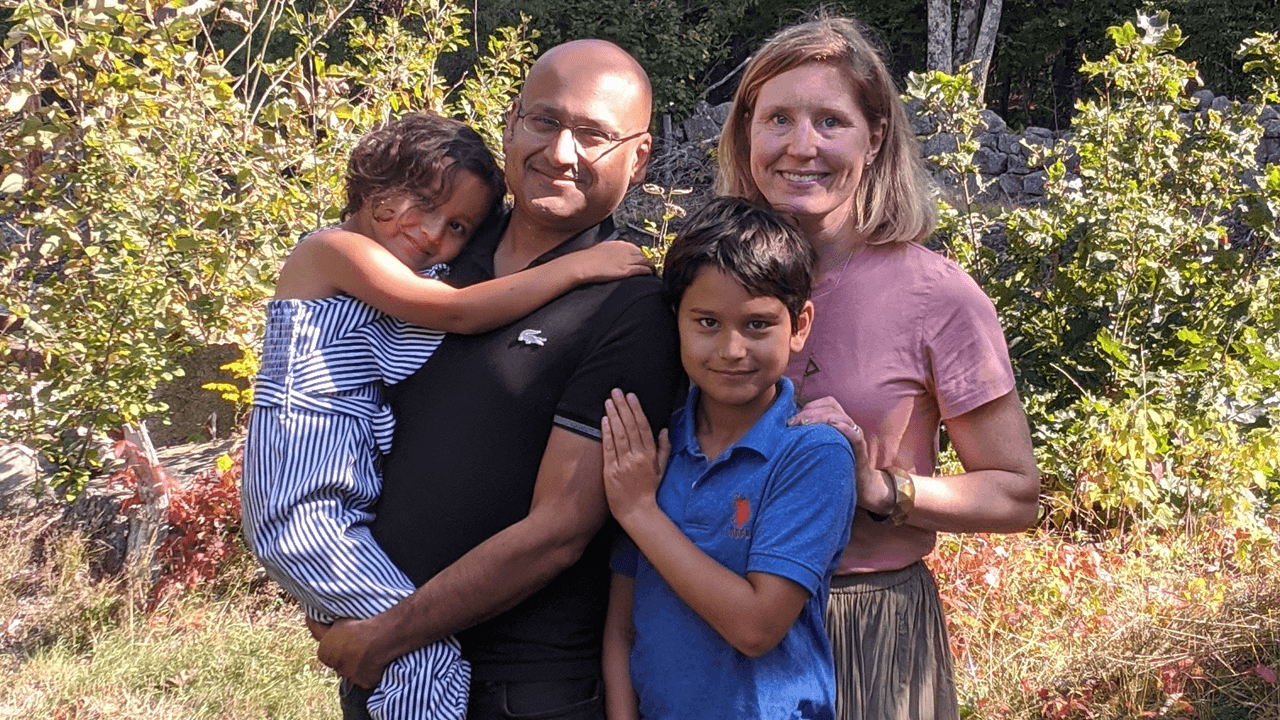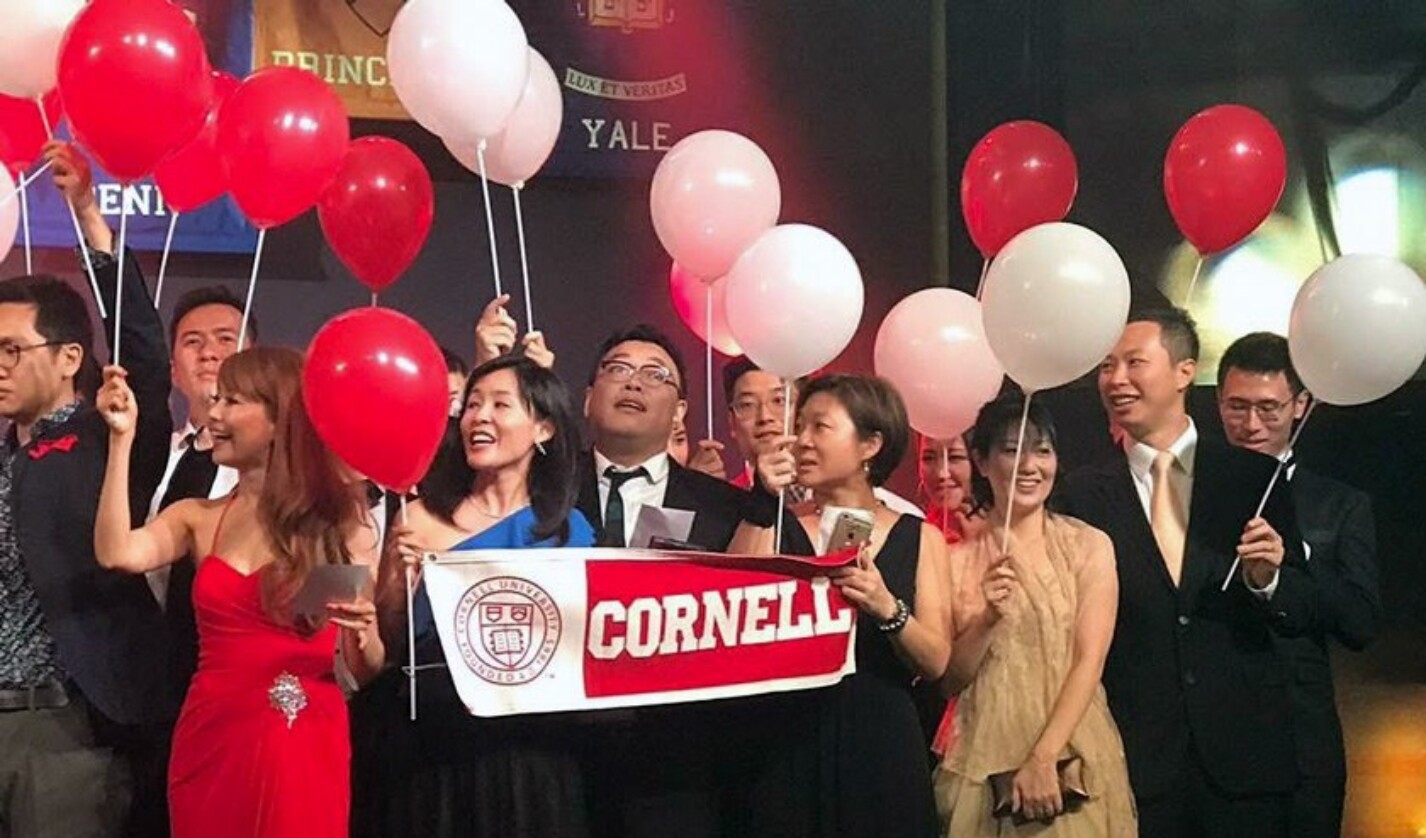“The way I think about it is that someone who might not have otherwise been able to afford university can do so,” says Anwar Kashem ’02, MEng ’04. “And then become someone who will pass that forward and help demonstrate what I think are Cornell’s values of doing good for the world.”
Kashem wants to help future Cornellians. That’s why he celebrated his 20th Reunion with a challenge match gift to support Cornell’s undergraduate affordability initiative.
Where are you from?
I am from a whole bunch of places. I was actually born in Bangladesh, but when I was two years old, my parents immigrated to Canada. I grew up there, and I’m a Canadian citizen.
When I was in high school, my parents moved to the United States, and I’ve lived here ever since. I went to high school in Boulder, Colorado, and then I went to Cornell. After Cornell, I’ve stayed in the greater Boston area for the last 20 years. It’s funny, folks asked me where I’m from, and I think I’m from Boston. I’ve been in Massachusetts for longer than anywhere else.
What inspired you to make a gift?
I am super lucky to be where I am—to have so many opportunities, and to have been able to afford college or have my parents be able to afford it for me.
My own father didn’t have that luxury. When he was 13 years old, he became a tutor and live-in boarder for wealthier families. That was the way that he was able to pay for his education: he worked and lived far away from his own family. He caught several lucky breaks—some government incentives and so on—allowing him to get an education.
So I want to make sure that I do everything I can to make sure that others have that opportunity. It’s really important to me that anyone can come study at Cornell regardless of their economic background. It means so much to me to be able to give that chance to anybody.
If you could talk to a future recipient of your gift, what would you tell them?
The gift has really no strings attached. They don’t owe me anything or anyone anything. The only thing I ask is that they make the most of their experience at Cornell. There are so many amazing opportunities from meeting people to super cool things like Cornell Outdoor Ed—it’s amazing. There’s so much in so many different programs for almost no cost.
I feel like I took a lot of different classes at Cornell—in all the different colleges—and I feel like I could have gone to Cornell for 10 more years and not have taken advantage of everything. So the only thing I’d ask is that they try to take advantage of as much as Cornell has to offer.
Tell us about some of your meaningful experiences at Cornell.
Cornell has really nice infrastructure and facilities—things that you come on to campus and see and can be impressed by. But I think the real thing that’s meaningful is the intangible infrastructure: the people, the professors, the TAs, your other colleagues, and classmates. I’m 20 years out now, but I still have really deep connections with faculty and classmates.

In engineering, what I thought came out really well at Cornell was that it wasn’t a competitive environment as much as a collaborative environment. That’s really the way I think that engineers succeed in the world—by figuring out how to collaborate not just with other engineers but with people from other disciplines.
One thing that is great about a place like Cornell is that you will meet folks from a lot of different backgrounds. And not just socioeconomic or ethnic, but also in fields of study and what people are interested in. What I learned when I got to Cornell is how much there is to be learned from people who have different backgrounds.
It’s like you’re learning to translate across disciplines?
Yes, I totally agree. I’m going to steal a quote from a guy I work with. He talks about the “genius of the and.” You know, it’s, “you’re going to solve an engineering problem and,” or “you’re going to write an essay and,” and the and is the collaboration and how we can create new amazing things or experiences or make the world better in whatever way. It’s achieved by really communicating and working with people who have different skills and different strengths. It’s so powerful.
How are Cornellians positioned to effect change in the world?
I would say that by the nature of what’s called the network of alumni and the prestige of Cornell. There are natural ways for folks to get plugged into institutions, professional networks, and other charitable networks that they may not otherwise have explored. I think that’s a great way for folks to make an impact because it’s very hard to make an impact all by yourself.
For most of us, the way that we can really effect change for the good and improve the world is with the help of others.





